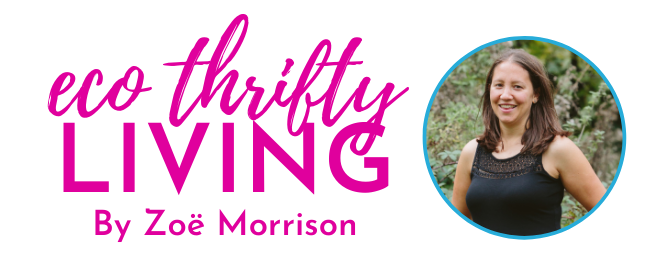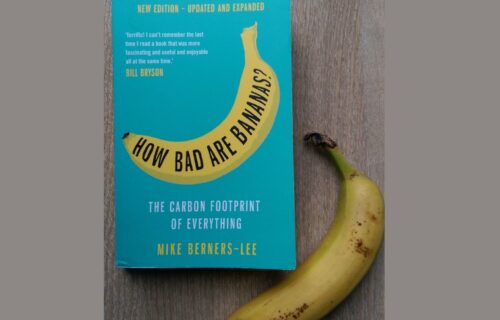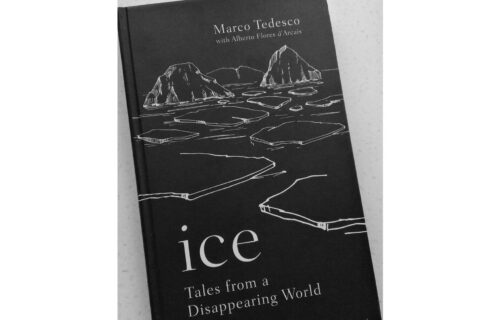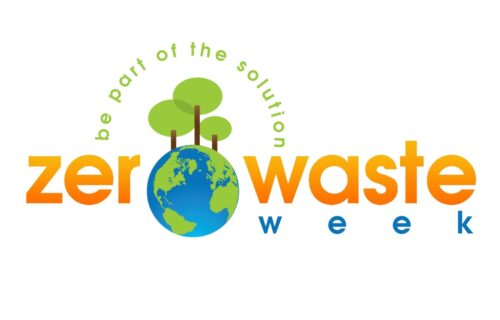
Interview with Karen Cannard of the Rubbish Diet
One of the challenges I set myself on My Year of Eco Challenges was to do the Rubbish Diet (read more here). Karen Cannard is the brains behind this brilliant project which helps people to slim their bins and reduce the levels of waste flowing out of their homes. I wanted to find out more about her and her Rubbish Diet and am so pleased she agreed to be interviewed by me – thanks Karen!
What got you started thinking about rubbish and why did you set yourself the challenge to throw nothing away for a week in March 2008?
In late 2007 I became aware of Love Food Hate Waste’s campaign. It resonated with me as food waste was definitely an issue in our household. We regularly used to throw away unopened packets of food that had gone past their use-by dates. Lots of uneaten produce would also end up in the compost. Until then, I’d felt very detached from the value of food. So for 2008, I resolved to reduce food waste along with many other new year’s resolutions that would see me also getting to grips with local recycling and finally remembering my reusable bags whenever I went shopping.
Soon into the new year, a friend invited me to sign up to the council’s Zero Waste Week challenge. Despite my new year’s resolution to reduce waste, I thought the idea of going for a week creating no landfill rubbish was totally impossible. However, I signed up knowing that it would still help me reduce as much as I could.
What inspired you to start writing the Rubbish Diet Blog and how did you get the Rubbish Diet Project off the ground?
As soon as I registered for Zero Waste Week, the council asked me if I would be their community champion. I took some persuading at first because this was a private challenge and not one that I wanted to broadcast publicly around my local community. I didn’t like the idea of becoming the ‘face of local waste’. I wasn’t an eco warrior, or a waste geek. I was simply an average mother who’d made a new year’s resolution. However, I eventually agreed, overcame my fears, and was filled with a real determination to reduce as much as we could. I set up The Rubbish Diet as a personal diary that could chart the challenge, including hurdles and successes and to also reach out to others who would be able to help. Our rubbish had reduced by around 50% within the first two weeks. When Zero Waste Week arrived, all we threw away was a plaster. That totally blew me away. When I first signed up, I’d expected we’d still have at least a small bag’s worth of rubbish. The whole experience taught me how much control we actually have over how much rubbish we choose to create and how easy it is to change habits beyond our own expectations. It was such a rewarding challenge that I started to invite others to do the same. It was great to see them slimming their bins successfully too. Meanwhile, I was keen to find out what happened to our waste and recycling and have spent the last six years researching the industry, visiting landfill sites, recycling processors as well as communities and cities where zero waste ambitions are becoming a reality.
It is an exciting time for the Rubbish Diet – can you explain a bit about what the project is, what’s happening and where it is going next?
In the last 12 months The Rubbish Diet has developed from a blog into a website, where people can now sign up and receive motivational tips to reduce their waste within just a few weeks. This is supported by a great team who are now running the challenge out in several communities with local Bin Doctors who are on hand to help fellow residents. The challenge takes people through getting to grips with local recycling, reducing food waste, discovering reusable products that help to reduce disposable waste, and learning about reuse and repair opportunities. The finale is a Zero Waste Week, which draws all the learning together. Most people who take the challenge reduce their waste by almost 50% and others by even more. We’ve seen streets signing up, groups of friends and community leaders, all sharing tips and making it fun. One of our latest projects, funded by West London Waste Authority, has involved running The Rubbish Diet challenge in the Harrow, and we are expanding this into another London borough soon.
How can and why should people get involved in the Rubbish Diet?
The great thing about The Rubbish Diet is that it gives people a perfect opportunity to reduce their waste straight away. Many people find recycling and reducing waste either confusing or have so much rubbish they don’t know where to start. It takes just a few minutes to register and just only a few weeks to complete the challenge. You’ll start receiving tips straight away, which you can adapt to suit your lifestyle. Our experts are also on hand to answer any questions. To find out more, visit www.therubbishdiet.org.uk.
Do you keep track of how much rubbish do you throw away each year? Do you know how much you threw away last year?
I used to keep track for the first year, but in doing so I found it was so easy to feel like a failure during those weeks when our waste might have suddenly increased instead of celebrating the success of reducing waste overall. However, our waste for a family of four generally averages at around two small carrier bags worth of rubbish per month.
Have you saved money by being reducing waste? If you have, do you know how much over the course of a year?
Two years after taking the Zero Waste Week challenge I calculated that we’d saved in the region of £2,500 by reducing food waste and switching from everyday consumables and disposable products to reusable solutions. We’ve also bought more second-hand items than previously, for example, children’s bikes and clothes so savings have been made there too. Consequently we’ve managed to save at least £1000 per year since 2008.
What do you think are the first five changes someone who is seeking to slim their bin can do?
- Everybody’s rubbish is different, so the best way to get started is to work out the top 5 things that fill your bin and try and treat this as your priority list.
- Visit your council’s website to see what you can recycle locally, including your Household Waste Recycling Centre. Don’t be afraid to call the recycling department if you are unsure. Staff are always happy to help.
- Reorganise your storage at home so that you have space to store your extra recyclables.
- Visit www.lovefoodhatewaste.com for great tips on how to store fresh produce and use up leftovers.
- When shopping, look for opportunities to reduce waste at source.
Do you have any recommended further reading/ viewing on how to reduce waste? e.g. blogs/ films/ books??
BLOG
Many people who reduce their waste at home often wonder what difference they make and what more could they do. The Zero Waste Europeblog is a great resource, highlighting some fantastic grassroots community ideas that have succeeded in recycling and reusing more as well as influencing product design. www.zerowasteeurope.eu
BOOK
The rubbish we create is the product of everything that we buy or do. A very interesting read is Enough: Breaking free from the world of more, by John Naish, which explores the art and science of ‘enoughness’, covering subjects that include food, stuff, and happiness.
FILM
One of the most inspiring documentaries is The Clean Bin Movie, featuring Jen & Grant, a couple from Canada who challenge each other to see who could create the least waste over a year. I was privileged to organise their tour of the UK last year and I love how they tackle the topic with humour and such an upbeat manner. www.cleanbinmovie.com
In an ideal world with access to unlimited time, resources and money, how would you focus your energies?
I would love to mobilise the country to take the Great British Rubbish Diet, encouraging homes across the country to try a Zero Waste Week. Even if everyone reduced their waste by just 10%, imagine the difference that would make.
Karen Cannard is the creator of The
Rubbish Diet, the UK’s first slimming club for bins. Since taking her first
Zero Waste Week in 2008, she’s become passionate about helping others take
control of their trash. Now a local columnist and regular contributor on
BBC local radio, she has also appeared on BBC Radio 4’s Woman’s Hour, The One
Show, C4 Dispatches and ITV1’s Tonight Documentary ‘Throwaway Britain’, where
she helped a family reduce their waste by 95%. She lives in Suffolk with
her husband and two children.
Rubbish Diet, the UK’s first slimming club for bins. Since taking her first
Zero Waste Week in 2008, she’s become passionate about helping others take
control of their trash. Now a local columnist and regular contributor on
BBC local radio, she has also appeared on BBC Radio 4’s Woman’s Hour, The One
Show, C4 Dispatches and ITV1’s Tonight Documentary ‘Throwaway Britain’, where
she helped a family reduce their waste by 95%. She lives in Suffolk with
her husband and two children.





Nice discussion Zoe. I wasn't aware of this program, but it is sorely needed. My wife and I try to reduce waste, but there is still so much. On the plus side we're using cloth diapers, so hey that's something
-Bryan
Thanks for your comment Bryan – that is definitely something! One step at a time I say.
Quite an inspiring story! I love the way Karen seemed to just fall into the role and then it just grew exponentially from there. It shows that people really do care about this stuff nowadays and there is lots of good work to be done!
You are totally right theFIREstarter. It is an inspiring story , people do really care and there is a lot of good work that needs doing!